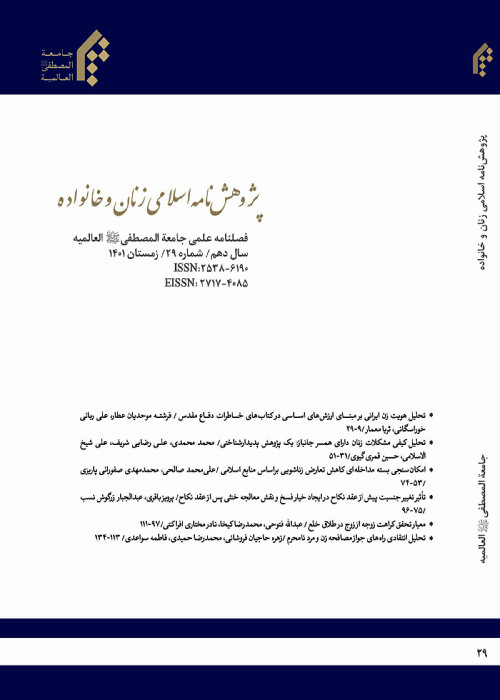The Internal Family Boundaries from the View of Psychology and the Holy Quran
The internal family boundaries is among the most important issues which concerns the interactions between family members and was presented in the constructivist approach for the first time. The present study aimed to explain the internal family boundaries according to the Holy Quran; thus, 83 verses and 70 interpretive narratives about internal family boundaries were analyzed with the help of a religious Ijtihad method. The results showed the five important findings that are as follows: first, the internal family boundaries are clearly explained in the verses of the Holy Quran, this pattern covers the suggestive frame of the constructivist approach, and its sub-systems and boundaries qualitatively and quantitatively have a more comprehensiveness. Second, all rules of inter-personal morality and legal limits (obligatory, forbidden, recommended, and disliked), which concern the internal interactions between family members and triple sub-systems, are named as the internal flexible and inflexible boundaries. Third, special marital commitment, the limits of couples' sexual interactions, the limits of couples' two-way expectations, private mental-physical area, marital secrecy, and flexibility about each other are among the most significant boundaries of marital sub-system. Fourth, the boundaries of parental sub-system are as follows: being banned children from entering parents' mental-physical area, being separate children's bed from parents', children's and parent's avoidance of looking at each other's private organs, being banned parents from not responding to children, and being banned children and parents from bothering each other. Fifth, in addition to men's and women's moral and sexual boundaries, the following are among the most important boundaries of brothers' and sisters' sub-system: adherence to physical limits such as being separate children's bed and getting permission for entering another's privacy, keeping mental privacy, and being banned from spying on each other's work.
- حق عضویت دریافتی صرف حمایت از نشریات عضو و نگهداری، تکمیل و توسعه مگیران میشود.
- پرداخت حق اشتراک و دانلود مقالات اجازه بازنشر آن در سایر رسانههای چاپی و دیجیتال را به کاربر نمیدهد.




